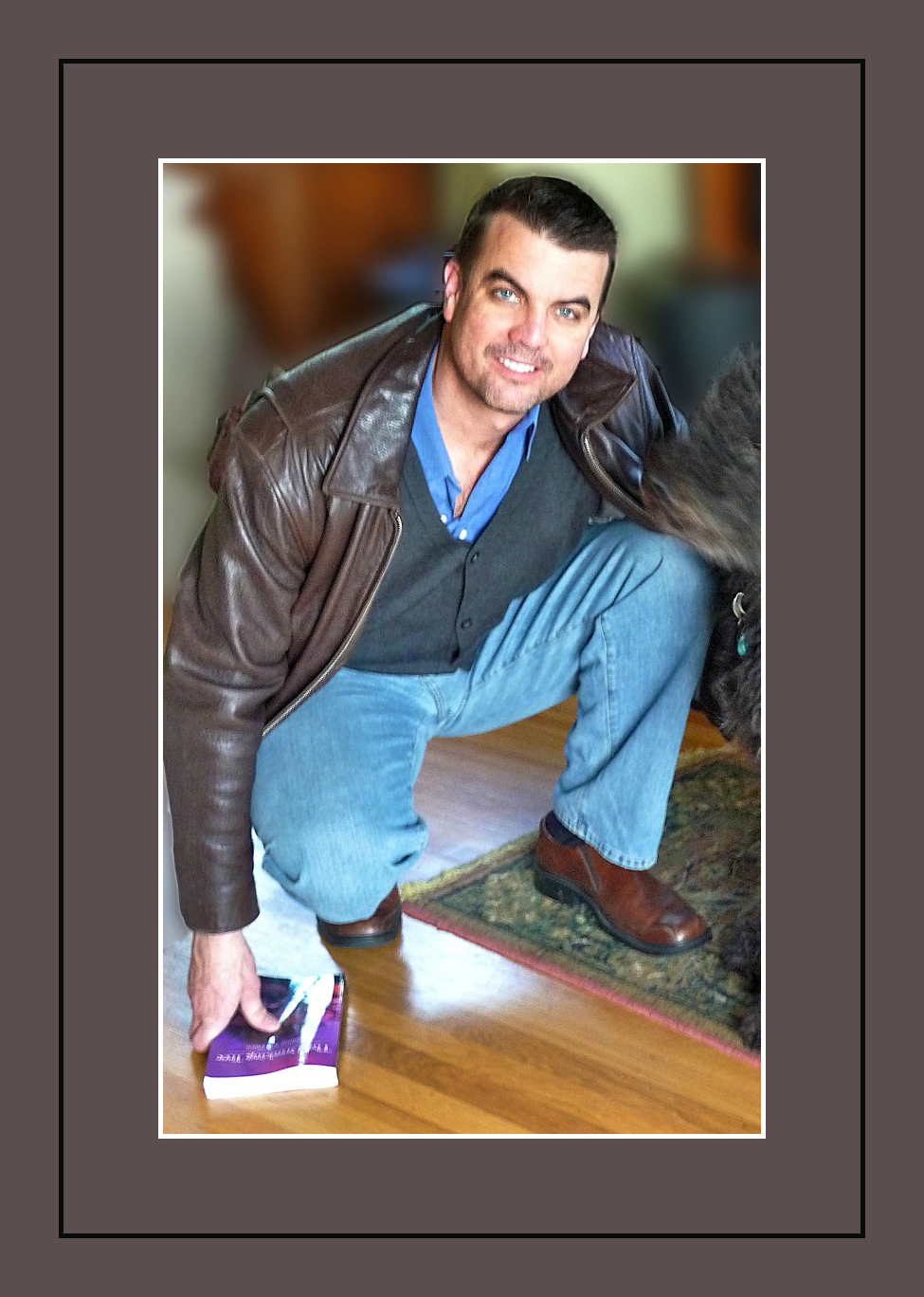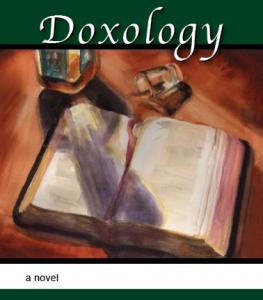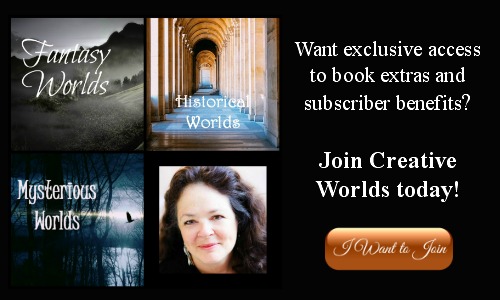This week I’ve decided to move over and let a fellow-author share a message that resonates with me. Guest Brian Holers aims a well-placed swing at the tortured writer stereotype. Whether you agree or disagree with Brian, his take is an interesting one.
About Brian Holers
An arborist by day and a novelist in every moment he can steal, Brian’s head is filled with stories which can’t be contained. Be it writing, blogging or ranting to friends, his voice is passionate and compelling.
Brian’s fiction is inhabited by characters who, like people everywhere, search for resolution and connection. Characters of faith appear to show God meeting people wherever they are, whether celebrating victory or learning to live with loss. Ultimately they must, in keeping with the words of the prayer, gain the serenity to accept the things they can’t change, and the courage to change the things they can.
Raised Christian, Brian now lives in a Jewish home in Seattle, Washington with his wife and son. The family spent 2006 traveling through East Africa, Southeast Asia, Israel and New Zealand. His experiences have given Brian a lifetime of stories to tell.
Life Is Art
A common stereotype tells us a true artist is tortured. Has us believe that, in order to create works of art from a variety of experience, to make something out of nothing, an artist must figuratively wrestle with demons, must go inside him- or herself to a dark place where anyone with sense would refuse to go; and that, by doing so, an artist is irreparably altered to the extent he or she will never function in polite society again.
It’s simply not true. Maybe tortured artists are just the ones we remember. The ones we read about in tabloids or history books, or see laid out bare, in all their tragic glory, in the movies.
It is true that self-abuse can make a person creative. We crave conflict, in life and in art (number one rule of fiction: create conflict). Many perceive reality, ordinary daily life, as dull, and prefer dark places. When an artist wallows in torture or pity, the creation may be beautiful, or if not beautiful, then memorable. More likely it will be simply twisted or unusual, barbaric, and will draw the reader in, like reality television, only because he is unable to look away.
Writing is hard. Getting to a creative place, then staying in that place, can take many steps. A writer has these beautiful thoughts, envisions vivid scenes filled with color and symbol, then they turn to dust when a blank page or blank screen appears. The greatest impediment to art, is immersion in reality. It’s not easy to get away from ourselves. So we look for shortcuts to the exalted state of mind required to write. Alcohol. Drugs. Reimagined childhood pain. Something comes out. The page is no longer blank. The words go together. They sound pretty good. Our friends read it. They say, “whoa. Dude.”
Thus, we keep illness alive. Personally, I guess I’m lucky. I’ve always been high on life. Low at times too, sure. The type of person who can go to imaginary places will be an emotional person. We’re so drawn to the worlds that live only in our minds that we sometimes forget to develop practical skills. We have to write, or else. Or else we can’t make a living. Or can’t stomach what we do have to do to make a living. Most of what I learn, I learn from writing. My goal has always been to get to the truth. The primary ingredients for me are time and discipline. If I tried to drink and write, cry and write, abuse myself and write, uninformed art would follow. Complaining. Drivel. Victimization. Crap.
We all struggle. It’s called being human. We all have a certain instinct, at times overpowering, to do things that aren’t good for us. Drink, dope, be lazy, abuse ourselves and those we love. Without a plan, we fall to the least common denominator. We look for relief from the pain life has brought us, then the relief makes us stop feeling and we seek out more pain. The other choice is discipline. Personally, I’ve never been smart or energetic enough to simultaneously ruin my life and do anything productive at all. When we embrace the darkness, it may seem to open the door to creativity, assuming we have enough discipline left to write anything at all instead of just staring at the pictures in our drunken minds and saying, “I’m a writer.” The drivel I’m able to write when I’m just letting things go, is a pale substitute for the clear, laden, beautiful prose that grows from sitting down at a chosen time in a chosen place and working. And working. And working. And unlike drivel, hard-fought art lasts. It actually matters.
Life is hard and potentially very sad. It is filled with brokenness, want and disappointment, and the potential for great melancholy. It is so hard, and so unlikely, for things to work out exactly as we want them to. We hope and we work to carve a little corner for ourselves, and in the end we’re met with loss and tragedy. No matter what, no matter how good we are, how hard we work, how much money we have, we’ll never get out of it alive. Astonishingly little is in our control. Still, it’s what there is, and it’s a gift filled with potential beyond measure. And underneath all of it, the one emotion that remains, and must remain, is hope.
I can’t get to that hope, to that beauty underneath, without working very hard. Writing is the hardest thing I’ve ever tried to do. I’m fortunate to have been uncommonly blessed. I’ve always been high on life. I’ve always enjoyed uplifting, positive stories about real people. People who struggle, as we all do, but who find a way to overcome. And not just stay lost in brokenness.
I can only write that, I can only create that imaginary world, by choosing to be positive and living soberly. The world we create when we write is elusive. So hard to get a finger on it. But in order to get it on paper, sometimes I have to stay back until it shows its face. I have to be waiting, patiently and diligently. Looking. Ready.
About the Book
Fathers, sons and brothers reconnect over tragedy in this blue-collar Southern tale of love, loss and the healing power of community and family.
Vernon Davidson is an angry man. After a lifetime of abuse and loss the 61-year-old is ready to get back at God, his co-workers, and everyone else is in his north Louisiana hometown. He drinks too much to numb the pain, shuns his friends and embarrasses himself in the community. The once-cautious Vernon spirals into a reckless mess.
Only when he is reunited with his estranged nephew Jody is he forced to confront his situation. Jody is struggling in equal parts after inflicting a self-imposed exile upon himself by fleeing the family, and thereby himself, for a new life thousands of miles away. Now his father, Vernon’s brother, is dying and Vernon agrees to retrieve him for his brother’s sake.
Jody embarks on a reluctant journey back to his Louisiana home and the two men together embark on a journey that will ultimately change their lives.
Brian Holers’s Doxology examines an impossibly difficult question: how does a man go about forgiving a God he has grown to despise after the tragedies and endless disappointments he has faced?
Get Your Copy of Doxology on Amazon.com or BarnesandNoble.com.You can also purchase Doxology for your iPad/iPod/iPhone in the Apple iBooks store.
Visit the website for Brian Holers
Photo Credit: Marilyn Holmes 2011
©2014 by Janalyn Voigt



Terrific post; thanks to you, Janalyn, for sharing your space, and to you, Brian, for sharing your thoughts and heart with us. Your comments encourage me, and I greatly appreciate them.
You’re welcome, Traci. Brian shatters the image of writers as temperamental and self-destructive. That’s an important message.